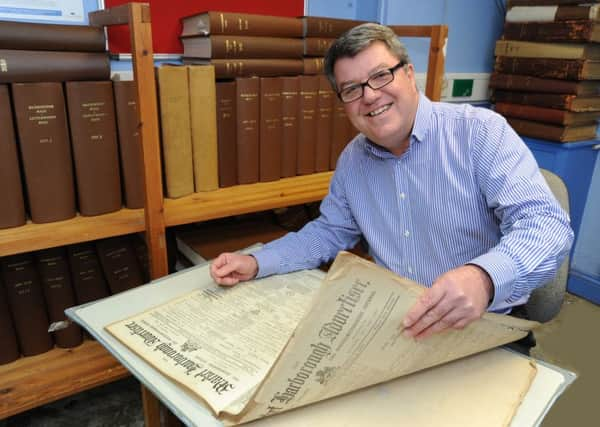John's WWI blog: Conscientious objector gets short shrift


A conscientious objector from Fleckney is given short shrift from the Rural District Tribunal as it sits in judgement on appeals from young men who did not want to be conscripted, according to the March 7, 1916, edition of the Market Harborough Advertiser.
The questioning of the un-named man by Chairman Mr G Stops is reported in detail – and there are no holds barred.
Advertisement
Hide AdAdvertisement
Hide AdFirstly, Mr Stops gets straight to the point and asks: “If a man struck you on the right cheek would you turn to him the other also?”
The man, who made military trousers and claimed it was Government work, replies: “I have not had that happen to me yet. I don’t think they would do it unless I provoked them. I never met a man yet who would do it.”
This brings a lengthy response from Mr Stops, who it seems was not afraid to use emotive arguments to bolster his cause. “Do you know the officers and men fighting are all very repugnant to take life? But when it comes to defending this country and the little children playing about in the streets it is another matter altogether.
“When these young fellows come back, those who do, to their civil occupations the taking of life will be just as repugnant to them to as before.”
Advertisement
Hide AdAdvertisement
Hide AdThe applicant, who is a non-conformist Christian, replies: “Probably so, but according to the teaching of the Master I should not take life. He came to save men’s lives not to destroy men’s lives and if I follow Him I cannot take life that is certain.”
He adds that he does not object to non-combatant service but claims he must have ‘free use of his conscience’ to decide if he would help wounded men.
Mr Stops, it seems, is not impressed.
He says: “Would you really sit still and let this country go under to the Germans, because if it once goes under it will be for all time?”
Then the chairman changes tack and turns the questioning towards monetary gain suggesting that his ‘wages have been very much increased during the war’ and adds ‘you don’t object to the war helping you line your pockets’.
Advertisement
Hide AdAdvertisement
Hide AdA number of other appeals are also reported but all under claims of exemption through vital war work.
Most of the appeals are turned down – along with the request from the conscientious objector. Mr Stops concludes: “The more single men we let off the worse it will be for the married man.”
The implementation of the Military Service Act, which was introduced at the beginning of 1916, is dominating the pages of the Advertiser which for the third consecutive week carries no direct news from the Harborough soldiers at the Front.
Is this because it’s still all quiet at the Front or perhaps the Advertiser is exercising its own editorial control to ensure bad news is not filtered through at a time when many young men in the area are being pushed into combat.